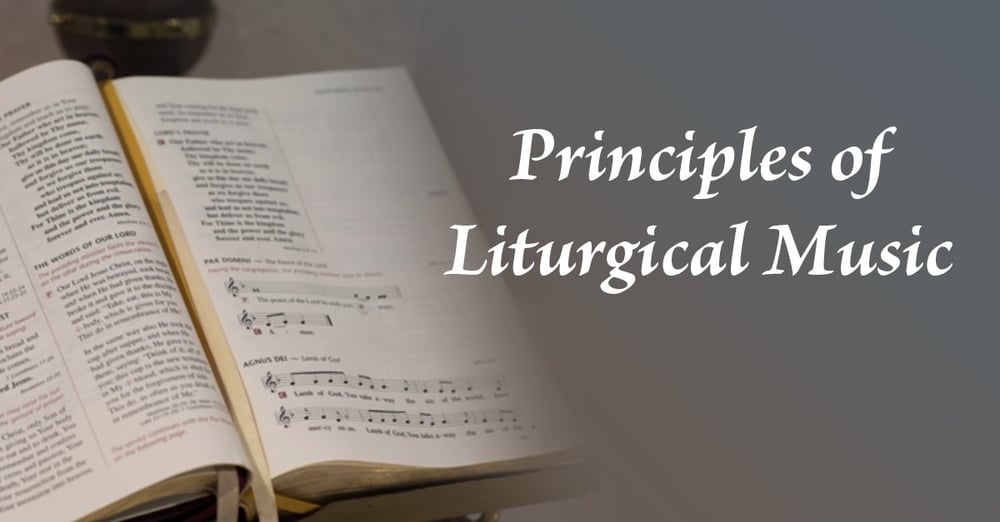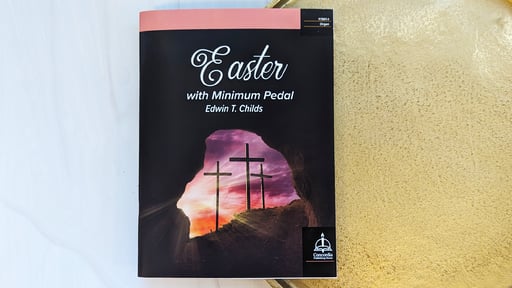There are a lot of ideas about what makes music appropriate for church. This post is an excerpt from Ceremony and Celebration and provides a few principles as defined by Paul H. D. Lang.
General Principles of Liturgical Music
Not every kind of music is church music. What is and what is not liturgical music is determined by certain basic principles with which every churchman should become acquainted. Lutheran pastors and church musicians especially need to know these principles and apply them in selecting the music for the worship services. Sometimes pastors disregard these principles on the plea of a lack of musical knowledge and training. But it is not necessary to be a trained musician to distinguish between church music and what is not church music. In fact, one need not be a musician to know the difference between good and poor church music. . . .
First Principle
Liturgical music must, first of all, be objective in character, that is, it must be directed to God and not to Man. It must not be "art for art's sake," but "art for worship's sake." It must extol the glory of God and not the glory of the musician, whether singer, organist, or choir. It must express the "Soli Deo gloria" (To God alone the glory) idea.
Concert music is usually not objective in character and is, therefore, unsuitable for worship services. It is too subjective. It attracts attention to itself or to the skill of the musician. It is not God-directed. . . .
Second Principle
The second principle is that worship music must be helpful in preparing the worshipers for the reception of the grace of God which is offered and conveyed through the Word and Sacraments, and for the response to this grace with all their faculties of soul and body. It must help to put them into the proper frame of mind and into the proper mood for sorrow or joy, adoration or praise. It must draw them away from themselves and the world around them to God and spiritual things. It must be music which is rendered to God, even though the worshipers do it only by proxy through the musicians.
Many people have a false idea of church worship. They go to church to hear a preacher or to enjoy the music instead of going to church to worship God. Music must not be the object of worship but its servant and handmaid. If it is connected with words, it must not overshadow the words but clothe them in fitting dress and give them proper expression. . . .
Third Principle
Thirdly, worship music must be sacred music; sacred as distinguished from secular or worldly. Operatic, dance, and all purely secular music is unsuitable for Christian worship, simply because it is not proper to and was not written for church worship. "All fitting music is good, but not all music is fitting."
We are aware, of course, that in the past some secular music was taken over by the church for use in worship. But we must remember that this was possible because secular life and the arts were dominated by a Christian culture. Even though it was secular music, it was Christianized secular music. . . .
Ignorance, prejudice, and indifference are the cause of most of the inappropriate music which is tolerated in the churches. If, for example, those Christians who insist on having "Here comes the bride" were aware of the fact that Wagner's "Wedding March" from Lohengrin is really not a wedding march at all, but a sensuous dance into the bedroom, and that during this operatic act the bridegroom murders a rival and finally abandons his bride, they would not ask to have it played in the sacred service of holy matrimony. . . .
A general rubric in The Lutheran Liturgy (p. 419) says: "In view of the fact that the music presented by the Choir and organist is part of the Service of Worship, it is imperative that this music be in keeping with the spirit of the liturgical character of the Service."
Excerpt is adapted from Ceremony and Celebration pages 78-80 © 1965 Concordia Publishing House. All rights reserved.
Interested in finding liturgical resources to use in your church?
CPH has a list ready for you to view.






.jpg?width=50&height=50&name=IMG_20220621_160541_456%20(1).jpg)








